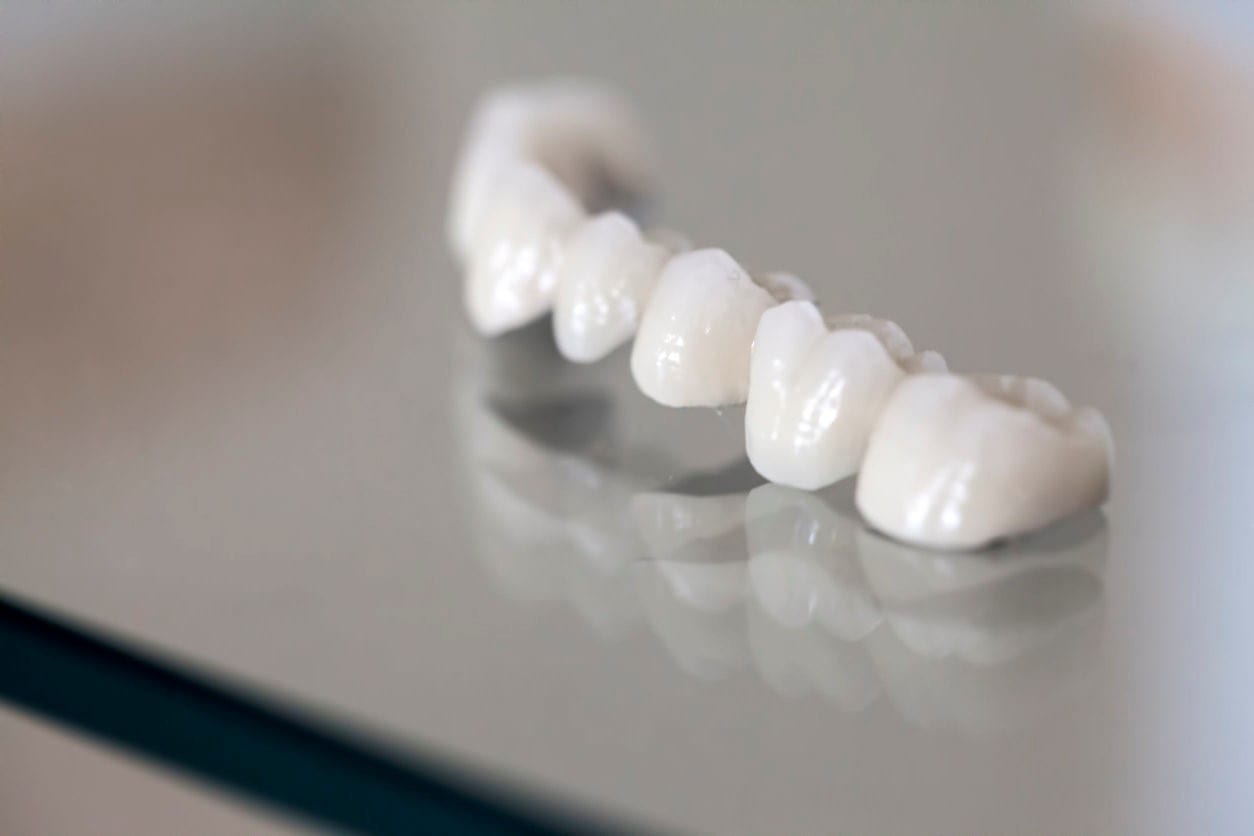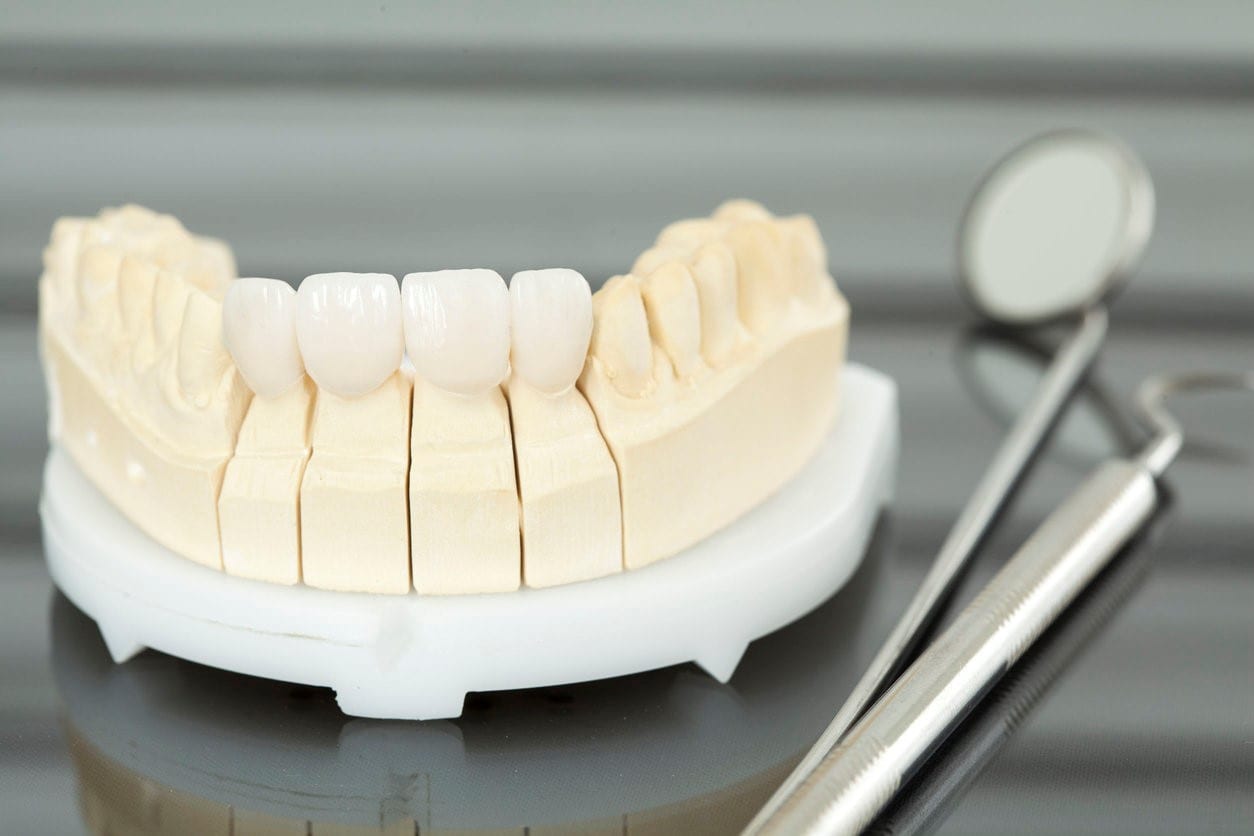
It’s natural for teeth to become discolored, worn or brittle over time, but there are many different types of cosmetic dental procedures that can help your teeth continue to look, feel, and work their best as you age.
Below we’re going to talk about dental crowns so that you can understand how they work, learn some of the benefits, and decide whether or not they might meet your needs.
What Exactly are Dental Crowns?
Dental crowns are basically “covers” for teeth that are broken, decayed or discolored. A single crown covers a single tooth, allowing it to look, feel, and function like a normal tooth that has not been affected by damage or discoloration.
People get dental crowns for a variety of reasons, including:
- Attaching a bridge
- Loss of surface area to a decayed or damaged tooth
- Preventing fractures
- Restoring fractures
- Cover teeth for cosmetic reasons (badly shaped or discolored)
How Does The Process of Installing a Dental Crown Work?

If you and your dentist decide that dental crowns are right for you, you will undergo the procedure over two separate appointments.
During the first appointment, your dentist will examine your teeth. The dentist may need to take X-rays to thoroughly assess the structure of the individual teeth set to get crowns.
Depending on each tooth’s needs, your dentist may then file down the tooth, or fill it to make sure it will be able to hold the crown. You will also receive a temporary crown during this first appointment. These crowns are usually made out of an acrylic material and will be attached using a temporary cement.
Additionally, an impression may be made of your tooth or the surrounding teeth to show dental labs what the permanent crown needs to look like.
It is important to be careful while you have your temporary crown(s). Your dentists will probably tell you to avoid chewing hard, sticky, or bulky foods which could break the temporary crown(s). Lifting floss, rather than sliding it out, may also dislodge or remove the temporary crown. Once you receive your permanent crown, you can go back to chewing and flossing like normal.
You will receive your permanent crown during your second visit. It will be applied by your dentist with a special adhesive.
It may take some time to get used to your new crown, but after a while, it will look and feel like a normal tooth. Your dentist will test your bite to make sure your new crown fits properly and may use a drill to reshape it slightly until your bite feels comfrotable.
What Are Crowns Made Of?

Not all crowns are the same. They can be made of porcelain, gold or precious alloys, ceramic, or acrylic or composite resin. The different materials are appropriate for different procedures and outcomes. Each has its own advantages and disadvantages.
For example, crowns that are installed for purely cosmetic reasons might be made of porcelain: they look great, but aren’t as strong as other crowns. Porcelain crowns can be customized to match the current color of the surrounding teeth. They are also a good choice for people who have specific allergies. Crowns may be made mainly of porcelain, or a porcelain-fused-to-metal combination.
If you are looking for a stronger crown, consider zirconia. This kind of crown is another great option for people with certain allergies, and it also blends in well with other teeth, making it preferable for people who have most of their original teeth left. Additional zirconia benefits include the fact that it is a thinner material and requires less of the tooth to be removed.
Another strong option is gold or other precious alloys. These types of crowns are easy to mold and fit to your existing tooth. They can also withstand a lot of damage and chewing. However, these types of crowns are not as aesthetically pleasing. Because of this, they might be best for teeth in the back of your mouth.
Other Things to Consider
Crowns are not the only dental procedures for cosmetic repairs. Consider the following factors when you are thinking about getting crowns for your smile:
Depending on the material, crowns can last as little as 7 years to up to 40 years. Different oral habits and your diet may also affect the life span of your crown. This does not mean that you should change your diet after you get crowns, but it is important to understand that crowns are still subject to decay and gum disease just like any other tooth.
There are different types of crowns that cover varying areas of your tooth. An “onlay” or “3/4” crown only covers part of your tooth, while traditional crowns typically cover the entire tooth.
As you can see, there are both pros and cons to crowns. If you would like more information about our dental crown procedures and if they are right for your teeth, or if you want to learn about other ways to improve your smile and your oral health, contact South Florida Dental Care today.






